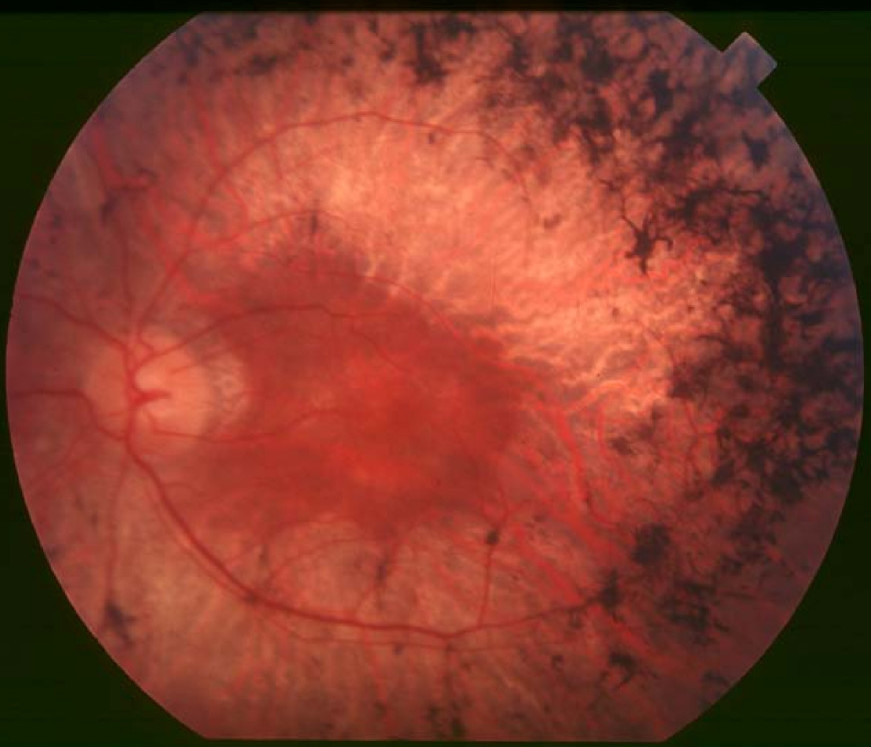Retinitis Pigmentosa 50

A number sign (#) is used with this entry because of evidence that retinitis pigmentosa-50 (RP50) is caused by heterozygous mutation in the BEST1 gene (607854) on chromosome 11q12.
For a general phenotypic description and a discussion of genetic heterogeneity of retinitis pigmentosa, see 268000.
MappingIn a nonconsanguineous family of European descent segregating autosomal dominant retinitis pigmentosa, Davidson et al. (2009) performed linkage analysis and obtained a maximum lod score of 2.9 on chromosome 11; haplotype analysis revealed a 64.9-Mb critical region between markers rs536715 and rs17304039, containing the BEST1 gene.
Molecular GeneticsIn the proband of a nonconsanguineous family of European descent segregating autosomal dominant retinitis pigmentosa (adRP) mapping to chromosome 11, Davidson et al. (2009) sequenced the candidate gene BEST1 and identified heterozygosity for a missense mutation (I205T; 607854.0022) that was subsequently detected in 9 other affected family members and was absent from 5 unaffected family members. Analysis of BEST1 in a panel of 95 adRP patients who were negative for mutation in 10 known RP genes and in 12 patients with concentric RP revealed heterozygosity for a D228N missense mutation (607854.0023) in affected members of 1 adRP family and 1 concentric RP family, and heterozygosity for a Y227C mutation (607854.0024) in another concentric RP family. Homozygosity for a missense mutation in BEST1 (L140V; 607854.0025) was found in affected members of a Pakistani family that appeared to be segregating adRP, but in which the parents were from the same village.
Leroy (2012) stated that although the phenotypes of the patients in the Davidson et al. (2009) study were probably all labeled 'retinitis pigmentosa' initially, the illustrations of the retinal phenotypes in the paper were highly suggestive of either autosomal dominant vitreoretinochoroidopathy (193220) or autosomal recessive bestrophinopathy (611809).